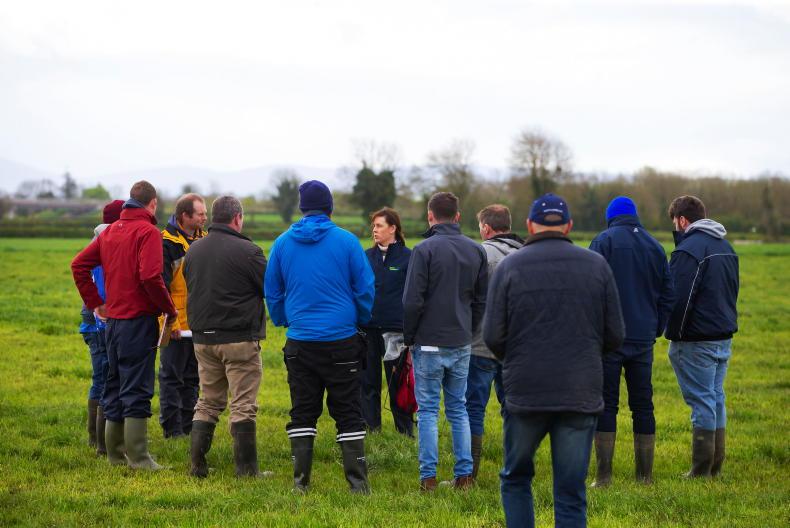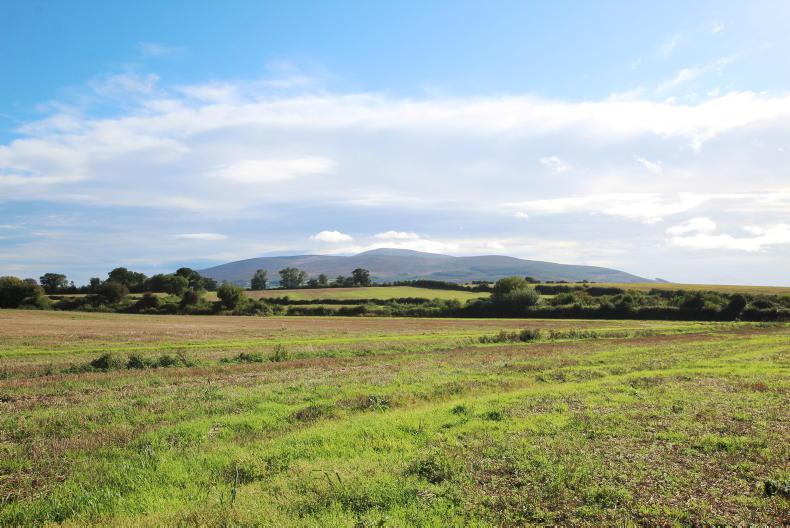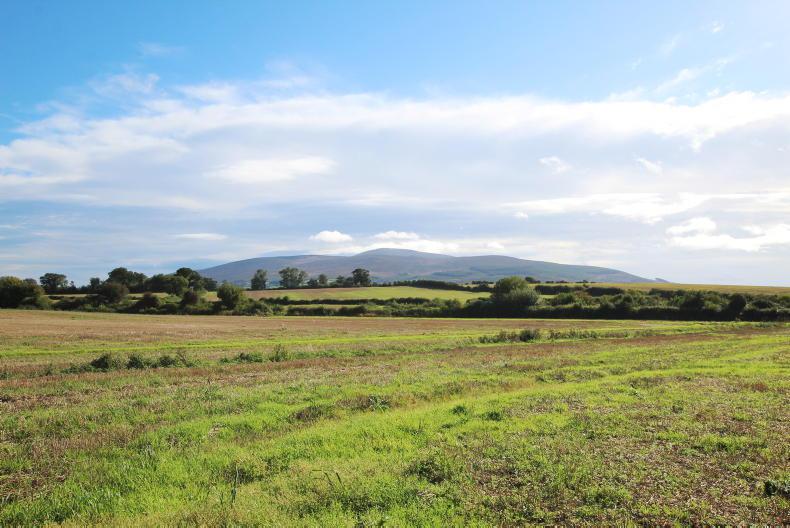On at least half a dozen occasions while looking at aspects of the big-ticket issues that dominated 2021, I have found myself commenting on the lack of a coherent or cohesive policy for land.
I’m beginning to form the conviction that our land policy is the elephant in the room, the weak foundation that needs urgent attention before the whole edifice topples over.
Do we need a land policy? Is the free market not the solution to all problems? Surely I’m not suggesting recommissioning the Land Commission.
My answer to those questions would be yes, no and of course not.
We need a land policy for a number of reasons. It’s the base for all food production, the labs have a way to go to. Land management also matters to the ecosystem and the environment. Thirdly, and most obviously, it’s a limited resource.
They aren’t making any more of it, as they say, and land is being diverted from farming every year. Houses, business premises, roads, greenways, land being set aside as “space for nature” (the artist formerly known as environmental focus areas) all permanently shrink the land base, acre by acre.
Afforestation will continue, not at the rate that some would like, but taking out thousands of hectares from food production annually. And this is before we consider (voluntary) rewetting, which may be a partial answer to meeting sectoral carbon reduction targets for 2030.
I spoke to Dr David Styles, who lectures on environmental engineering in the University of Limerick, following his address to the ICMSA conference recently.
His view of the challenge facing agriculture in meeting its 2030 targets was striking, in that he felt that it’s only a staging post to the real goal, which is zero-carbon farming by 2050.
For that to happen, we’re moving way beyond the MACC curve or low-emission slurry spreading.
And it isn’t about the size of the national herd, or the dairy herd or the suckler herd. It’s all about land use. Dr Styles holds that only a seismic shift in land use policy will see us reach that much more challenging target. While the early progress in tackling bovine methane emissions gives grounds for optimism, the number of animals we farm may be an outcome of the land base devoted to farming.
So land use is constantly evolving, and the Climate Action Plan contains land use changes within it. This is in effect a partial land policy.
That is not the only element of Government land policy that currently exists. There is an identified need for land mobility, to ensure younger hands get on the tiller on more farms. And the instrument chosen to deliver this objective is a tax break to landowners, particularly older landowners, when they lease land out.
I reckon it’s time we reviewed that policy. I’m not saying that we scrap the leasing tax break, but perhaps we need to adjust it to better reach younger farmers.
As things stand, it doesn’t really matter who the leasee is. It could be a young farmer trying to get started or expand. It could be a young farmer who has had 500 acres handed to them. It could be a well-established farmer, indeed an older well-established farmer.
We are creating some mobility in the land rental market, but giving no advantage to younger farmers.
Indeed, the one thing that can’t happen is a young farmer gaining a tax advantage when leasing from a relative.
The logic seems to be that Revenue believes such leases would happen anyway, and need little incentivisation.
But if we are trying to create succession paths, barring nieces, nephews or grandchildren from entering into a structured lease that might lead to a farm sale or transfer does not seem enlightened.
Perhaps we should try to load the incentives on to the people leasing the land and farming it. The ones who are working their socks off, the ones who don’t have land to their name.
And it’s pretty obvious that the decision to allow entitlements to be bundled in with land leases is a further complication that needs addressing.
These land mobility incentives are combining to make leasing land more attractive than selling or transferring it. Piecemeal adjustments to entitlement clawbacks won’t change that.
So no, I’m not suggesting not a Land Commission, but perhaps a Commission on Taxation with the clear goal of incentivising the lease of land to young farmers, as opposed to the lease of land by older farmers, or non-farmers for that matter.
My final point is the current tax incentives around leasing, added to the benevolent tax treatment for farm transfer, is a mix that is attracting non-farmers toward buying land.
The combination of an asset that will never devalue, has a decent earning capacity that has tax advantages, and is an efficient method of wealth transfer is enticing. Farming has enough challenges without creating a landlord class.
This is a complex issue, with no single solution. A decent starting point would be to raise the bar for qualification for these tax advantages.
At least one of the parties in a transfer should be an active farmer, and if that is the younger generation, they should be highly trained for a career that is demanding and important.
As farmers, we tend to undervalue farming and food production, and it starts right here.
Some may not like the idea of increasing the minimum educational qualifications for farming, but perhaps it should be centred around continuous on-the-job training.

\ Patrick Browne
Discussion groups, knowledge transfer groups, safety courses, technical briefings, seminars, open days, office management.
The old minimum educational attainment for farmers was designed at a time when a lot of lads left school after the group or the Inter Cert (ask your parents).
Those days are gone. Every serious farmer is engaged in endless training, whether it’s chainsaw handling, grass measuring, AI training, sprayer handling and pesticide usage.
Why not use that to wall off the tax incentives that are intended for farmers from non-farmers?
If not, we’ll be back to the age old question - is the land working for the farmer, or is the farmer working for the land.
We should be moving past that by now.
On at least half a dozen occasions while looking at aspects of the big-ticket issues that dominated 2021, I have found myself commenting on the lack of a coherent or cohesive policy for land.
I’m beginning to form the conviction that our land policy is the elephant in the room, the weak foundation that needs urgent attention before the whole edifice topples over.
Do we need a land policy? Is the free market not the solution to all problems? Surely I’m not suggesting recommissioning the Land Commission.
My answer to those questions would be yes, no and of course not.
We need a land policy for a number of reasons. It’s the base for all food production, the labs have a way to go to. Land management also matters to the ecosystem and the environment. Thirdly, and most obviously, it’s a limited resource.
They aren’t making any more of it, as they say, and land is being diverted from farming every year. Houses, business premises, roads, greenways, land being set aside as “space for nature” (the artist formerly known as environmental focus areas) all permanently shrink the land base, acre by acre.
Afforestation will continue, not at the rate that some would like, but taking out thousands of hectares from food production annually. And this is before we consider (voluntary) rewetting, which may be a partial answer to meeting sectoral carbon reduction targets for 2030.
I spoke to Dr David Styles, who lectures on environmental engineering in the University of Limerick, following his address to the ICMSA conference recently.
His view of the challenge facing agriculture in meeting its 2030 targets was striking, in that he felt that it’s only a staging post to the real goal, which is zero-carbon farming by 2050.
For that to happen, we’re moving way beyond the MACC curve or low-emission slurry spreading.
And it isn’t about the size of the national herd, or the dairy herd or the suckler herd. It’s all about land use. Dr Styles holds that only a seismic shift in land use policy will see us reach that much more challenging target. While the early progress in tackling bovine methane emissions gives grounds for optimism, the number of animals we farm may be an outcome of the land base devoted to farming.
So land use is constantly evolving, and the Climate Action Plan contains land use changes within it. This is in effect a partial land policy.
That is not the only element of Government land policy that currently exists. There is an identified need for land mobility, to ensure younger hands get on the tiller on more farms. And the instrument chosen to deliver this objective is a tax break to landowners, particularly older landowners, when they lease land out.
I reckon it’s time we reviewed that policy. I’m not saying that we scrap the leasing tax break, but perhaps we need to adjust it to better reach younger farmers.
As things stand, it doesn’t really matter who the leasee is. It could be a young farmer trying to get started or expand. It could be a young farmer who has had 500 acres handed to them. It could be a well-established farmer, indeed an older well-established farmer.
We are creating some mobility in the land rental market, but giving no advantage to younger farmers.
Indeed, the one thing that can’t happen is a young farmer gaining a tax advantage when leasing from a relative.
The logic seems to be that Revenue believes such leases would happen anyway, and need little incentivisation.
But if we are trying to create succession paths, barring nieces, nephews or grandchildren from entering into a structured lease that might lead to a farm sale or transfer does not seem enlightened.
Perhaps we should try to load the incentives on to the people leasing the land and farming it. The ones who are working their socks off, the ones who don’t have land to their name.
And it’s pretty obvious that the decision to allow entitlements to be bundled in with land leases is a further complication that needs addressing.
These land mobility incentives are combining to make leasing land more attractive than selling or transferring it. Piecemeal adjustments to entitlement clawbacks won’t change that.
So no, I’m not suggesting not a Land Commission, but perhaps a Commission on Taxation with the clear goal of incentivising the lease of land to young farmers, as opposed to the lease of land by older farmers, or non-farmers for that matter.
My final point is the current tax incentives around leasing, added to the benevolent tax treatment for farm transfer, is a mix that is attracting non-farmers toward buying land.
The combination of an asset that will never devalue, has a decent earning capacity that has tax advantages, and is an efficient method of wealth transfer is enticing. Farming has enough challenges without creating a landlord class.
This is a complex issue, with no single solution. A decent starting point would be to raise the bar for qualification for these tax advantages.
At least one of the parties in a transfer should be an active farmer, and if that is the younger generation, they should be highly trained for a career that is demanding and important.
As farmers, we tend to undervalue farming and food production, and it starts right here.
Some may not like the idea of increasing the minimum educational qualifications for farming, but perhaps it should be centred around continuous on-the-job training.

\ Patrick Browne
Discussion groups, knowledge transfer groups, safety courses, technical briefings, seminars, open days, office management.
The old minimum educational attainment for farmers was designed at a time when a lot of lads left school after the group or the Inter Cert (ask your parents).
Those days are gone. Every serious farmer is engaged in endless training, whether it’s chainsaw handling, grass measuring, AI training, sprayer handling and pesticide usage.
Why not use that to wall off the tax incentives that are intended for farmers from non-farmers?
If not, we’ll be back to the age old question - is the land working for the farmer, or is the farmer working for the land.
We should be moving past that by now.







 This is a subscriber-only article
This is a subscriber-only article











SHARING OPTIONS: